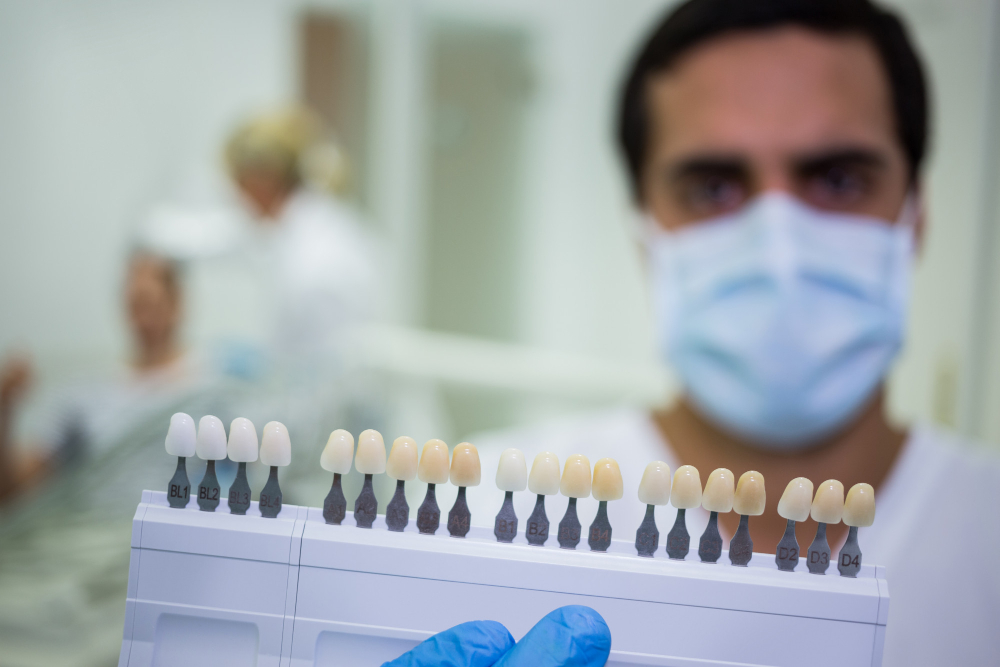What Are Dental Crowns?
Dental crowns are tooth-shaped caps placed over teeth. They help restore the tooth’s shape, size, and strength. Often, dentists use dental crowns to protect weak teeth or cover damaged ones. Because crowns look like natural teeth, they blend in well. According to the American Dental Association, crowns are a common way to fix dental problems.
Common Reasons for Dental Crowns
There are several reasons why your dentist may suggest a dental crown. For example, you might need one if you have:
A cracked or broken tooth
A tooth with a large filling
A tooth that is worn down
A tooth after a root canal
A dental implant that needs covering
Cosmetic reasons, such as covering a misshapen tooth
Sometimes, dental crowns are also used for children with damaged baby teeth.
Types of Dental Crowns
There are different types of dental crowns. Each type has its own benefits. Your dentist will help you choose the best one for your needs. The main types include:
Porcelain crowns: These look most like natural teeth. They are often used for front teeth.
Metal crowns: These are very strong and last a long time. However, they do not look like natural teeth.
Porcelain-fused-to-metal crowns: These combine the look of porcelain with the strength of metal.
Resin crowns: These are less expensive but may wear down faster.
Ceramic crowns: These are a good choice for people with metal allergies.
Because each type has pros and cons, it is important to discuss your options with your dentist.
The Dental Crown Procedure: Step-by-Step
The dental crown procedure usually takes two visits. Here is what you can expect:
First Visit: Your dentist examines your tooth and takes X-rays. Next, they shape the tooth and may take an impression. Sometimes, a temporary crown is placed to protect your tooth.
Second Visit: The dentist removes the temporary crown. Then, they fit and cement the permanent crown onto your tooth.
In some clinics, same-day crowns are possible with special technology. However, most people need two visits.
Benefits of Dental Crowns
Dental crowns offer many benefits. For instance, they:
Protect weak or damaged teeth
Restore the shape and function of teeth
Improve your smile’s appearance
Support dental bridges
Last many years with proper care
Because crowns are custom-made, they fit your mouth well and feel natural.
Aftercare and Maintenance Tips
Proper dental crown aftercare helps your crown last longer. Here are some tips:
Brush your teeth twice a day
Floss daily to remove food and plaque
Avoid chewing hard foods like ice or hard candy
Visit your dentist for regular check-ups
Wear a mouthguard if you grind your teeth at night
With good care, dental crowns can last 5 to 15 years or even longer.
Potential Risks and Complications
Although dental crowns are safe, there can be some risks. For example, you may notice:
Sensitivity to hot or cold foods
Discomfort or pain if the crown does not fit well
Chipping or loosening of the crown
Allergic reaction to crown materials (rare)
Gum irritation around the crowned tooth
If you have any problems, contact your dentist right away. Early care can prevent bigger issues.
Frequently Asked Questions
How long do dental crowns last? With proper care, dental crowns can last 5 to 15 years or more.
Does the dental crown procedure hurt? Most people feel little to no pain. Dentists use numbing medicine to keep you comfortable.
Can I eat normally with a dental crown? Yes, but avoid very hard or sticky foods to protect your crown.
Are dental crowns covered by insurance? Many dental plans cover part of the cost. Check with your provider for details.
Do dental crowns look natural? Yes, especially porcelain or ceramic crowns. They are made to match your other teeth.
In summary, dental crowns are a safe and effective way to restore your smile. If you think you may need a crown, consult your dentist to find out if dental crowns are right for you.

